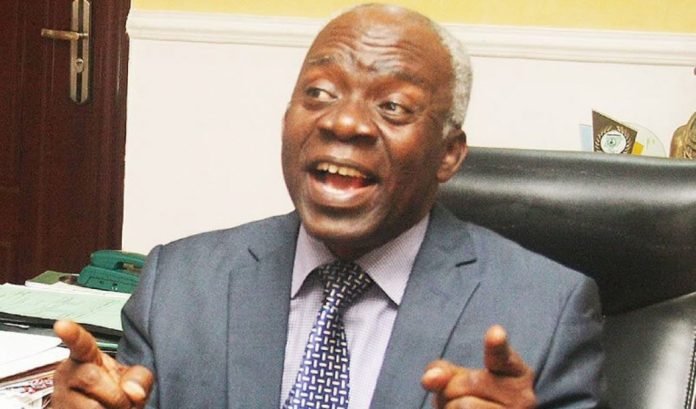Human rights lawyer and Senior Advocate of Nigeria (SAN), Femi Falana, has said the Chairmen of anti-graft agencies, the Economic and Financial Crimes Commission, EFCC and the Independent Corrupt Practices and Other Related Offences Commission, ICPC can not come from the same geopolitical zone.
Recall that on October 12, 2023, President Bola Tinubu appointed Mr Ola Olukoyede as the new EFCC boss while Prof. Bolaji Owasanoye (SAN) has been the ICPC Chairman since 2019. Both men hail from the South West.
According to Falana, having the chairmen of the two anti-graft federal agencies in Nigeria to come from the same geopolitical zone is against the federal character principle.
He said if the chairman of the EFCC is from the northern region, the southern region should produce the chairman of the ICPC.
Falana said;
“If you are going to have the EFCC and the ICPC, the heads cannot come from same zone.” Falana told Channels TV on Monday, October 16.
The EFCC chairman, Ola Olukoyede, is “eminently qualified” to head the anti-graft agency having previously served as Chief of Staff to the EFCC Chairman (2016-2018) and Secretary to the Commission (2018-2023) as well as having 22 years cognate experience.
“There is no issue; the only issue that has been raised has to be considered by the government is that we have in this country, the Federal Character Commission Act and also by the virtue of Section 14 of the constitution, appointments must reflect Federal Character.
“If you are going to have the EFCC and the ICPC, the heads cannot come from same zone. If there are two positions in the public service, one must go to the North, one must go to the South. If there are four, two must go to the South, two must go to the North. If there are six, one must go to each geopolitical zone. That is the law in Nigeria today.
“So, I am not comfortable with the fact that the heads of the EFCC and the ICPC are from the same zone. Apart from that, Mr Ola Olukoyede, is eminently qualified to head the EFCC. My colleagues who have criticised the appointment have not looked at the relevant provisions of the EFCC which is Section 2.”

